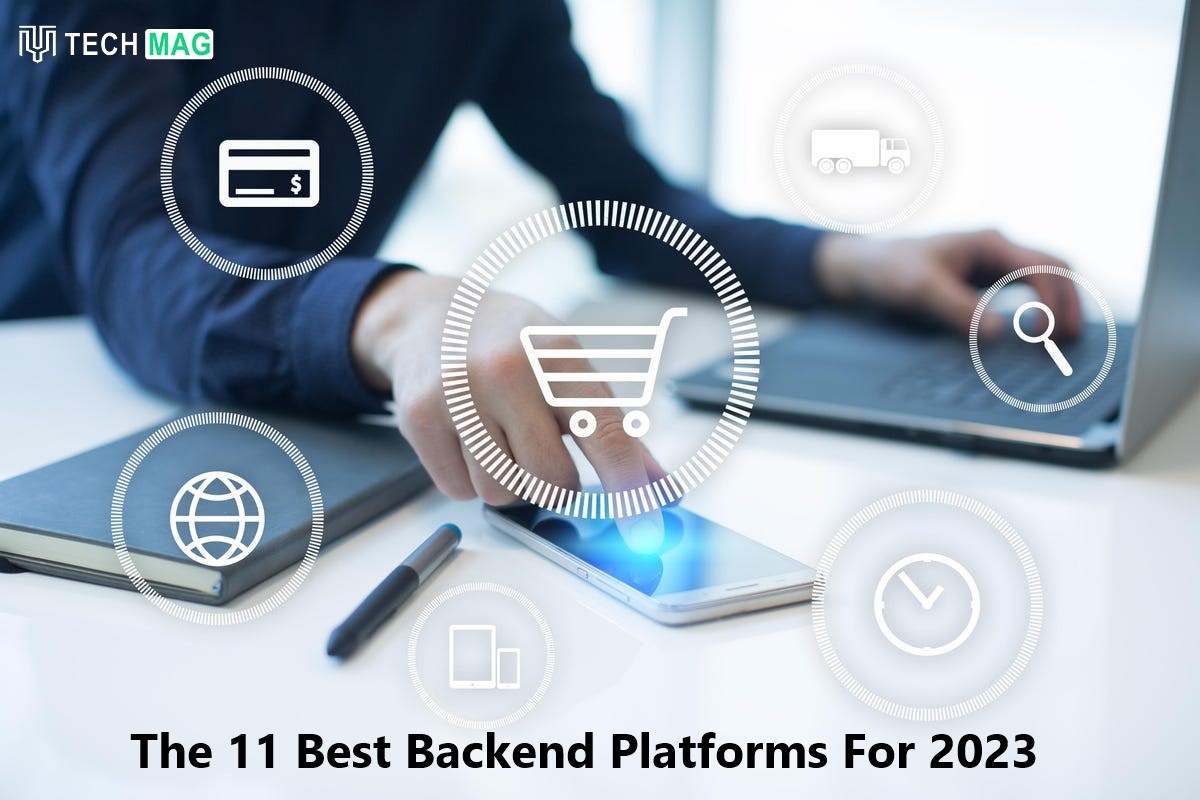Do you know The 11 Best Backend Platforms For 2023? As we approach the year 2023, the demand for high-quality backend platforms is growing at a rapid pace. Backend platforms are the foundation of any web application, serving as the backbone that powers the application’s functionality. Choosing the right backend platform is crucial to the success of your web application, as it affects everything from scalability to security. In this article, we will explore the seven best backend platforms for 2023, taking into account their features, benefits, and pricing.
Read More: Top 7 Best Blockchain Platforms in 2023
Explore the Contents
Introduction
Backend platforms have become an integral part of web development, enabling developers to build scalable, robust, and secure web applications. In 2023, the demand for backend platforms is expected to grow significantly as businesses continue to rely on web applications to serve their customers. In this article, we’ll provide a comprehensive overview of the best backend platforms for 2023.
What is a Backend Platform?
A backend platform is a set of tools and services that enable developers to build and manage the server-side of web applications. Backend platforms typically offer features such as database management, API management, serverless computing, and data analytics. Backend platforms allow developers to focus on building the application’s business logic and user interface, without worrying about the underlying infrastructure.
Features to Consider when Choosing a Backend Platform
Choosing the right backend platform can be challenging, given the many options available. Some of the essential features to consider when choosing a backend platform include:
Scalability
The ability to scale the backend infrastructure is critical for web applications that experience sudden spikes in traffic. A good backend platform should allow for horizontal scaling, which involves adding more servers to handle the load.
Security
Security is critical for web applications, and a good backend platform should offer robust security features such as access control, data encryption, and secure communication protocols.
Integration
Backend platforms should be easy to integrate with other tools and services, such as front-end frameworks, third-party APIs, and databases.
Cost
The cost of the backend platform is also an important consideration, as it can significantly impact the application’s budget.
Best Backend Platforms for 2023
Here are the top backend platforms for 2023:
Amazon Web Services (AWS)
Amazon Web Services (AWS) is a cloud computing platform that offers a wide range of services, including compute, storage, and database management. AWS is one of the most popular backend platforms, thanks to its reliability, scalability, and security features. AWS also offers a range of tools for developers, including AWS Lambda for serverless computing and Amazon DynamoDB for NoSQL database management.
Google Cloud Platform (GCP)
Google Cloud Platform (GCP) is a cloud computing platform that offers a range of services, including compute, storage, and database management. GCP is known for its advanced analytics and machine learning capabilities, making it a popular choice for data-intensive applications. GCP also offers tools for container management and serverless computing, such as Google Kubernetes Engine and Google Cloud Functions.
Microsoft Azure
Microsoft Azure is a cloud computing platform that offers a range of services, including compute, storage, and database management. Azure is known for its robust security features, including identity management and access control. Azure also offers tools for building serverless applications, such as Azure Functions and Logic Apps.
Heroku
Heroku is a cloud platform that specializes in providing a simple and easy-to-use platform for deploying web applications. Heroku is built on top of Amazon Web Services, making it highly scalable and reliable. Heroku also offers a wide range of tools and integrations, making it easy for developers to build, deploy, and manage their applications.
Firebase
Firebase is a backend platform that is designed specifically for mobile and web applications. Firebase offers a range of services, including real-time database, authentication, and hosting. Firebase is highly scalable and provides a simple and easy-to-use interface, making it a popular choice for developers who want to build applications quickly.
DigitalOcean
DigitalOcean is a cloud computing platform that offers a range of services, including compute, storage, and networking. DigitalOcean is known for its simplicity and ease of use, making it a popular choice for developers who want to deploy their applications quickly. DigitalOcean also offers a range of tools for managing containers, such as Kubernetes.
Kubernetes
Kubernetes is a container management platform that allows developers to deploy and manage their applications in a containerized environment. Kubernetes is highly scalable and can be used to manage both simple and complex applications. Kubernetes is also highly customizable and can be integrated with a wide range of tools and services.
IBM Cloud
IBM Cloud is a cloud computing platform that offers a range of services, including compute, storage, and database management. IBM Cloud is known for its security and compliance features, making it a popular choice for businesses that operate in regulated industries. IBM Cloud also offers a range of tools for building and managing applications, such as IBM Cloud Functions and IBM Cloud Foundry.
Alibaba Cloud
Alibaba Cloud is a cloud computing platform that offers a range of services, including compute, storage, and networking. Alibaba Cloud is designed for businesses that operate in China and other regions in Asia, making it a popular choice for companies that want to expand their operations in these regions. Alibaba Cloud also offers a range of tools for managing containers, such as Kubernetes.
Oracle Cloud Infrastructure (OCI)
Oracle Cloud Infrastructure (OCI) is a cloud computing platform that offers a range of services, including compute, storage, and networking. OCI is known for its reliability and performance, making it a popular choice for businesses that require high availability and low latency. OCI also offers a range of tools for building and managing applications, such as Oracle Functions and Oracle Kubernetes Engine.
Read More: Top 10 Ways to Find the Best IOT Platform 2023
Conclusion
Choosing the right backend platform can make a significant difference in the performance, scalability, and security of your web application. The best backend platform for your application will depend on your specific requirements and budget. In this article, we discussed the top backend platforms for 2023, including Amazon Web Services, Google Cloud Platform, Microsoft Azure, Heroku, Firebase, DigitalOcean, Kubernetes, IBM Cloud, Alibaba Cloud, and Oracle Cloud Infrastructure.
FAQs
What is a backend platform?
A backend platform is a set of tools and services that enable developers to build and manage the server-side of web applications.
What are the essential features to consider when choosing a backend platform?
Essential features to consider when choosing a backend platform include scalability, security, integration, and cost.
What is the best backend platform for 2023?
best backend platform for 2023 will depend on your specific requirements and budget. The top options for 2023 include Amazon Web Services, Google Cloud Platform, Microsoft Azure, Heroku, Firebase, DigitalOcean, Kubernetes, IBM Cloud, Alibaba Cloud, and Oracle Cloud Infrastructure.
How can I determine the right backend platform for my application?
You should consider factors such as the type of application you are building, the size and complexity of your application, your budget, and any specific features or integrations you require.
Can I switch to a different backend platform later on?
Yes, it is possible to switch to a different backend platform later on, although it may require significant effort and time to migrate your data and applications.



